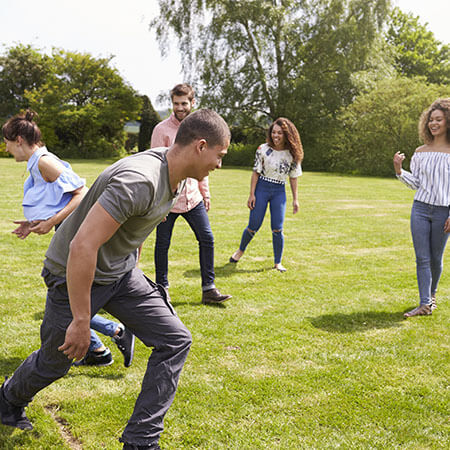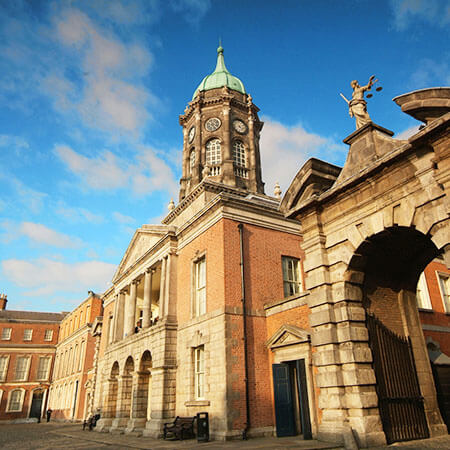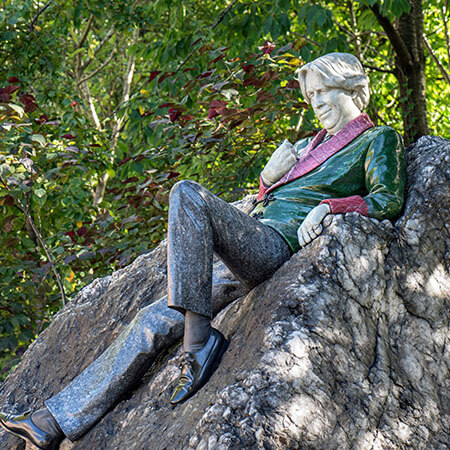Living in Dublin comes with so many benefits, it’s no surprise that so many people are choosing to call the city home. In fact, at least 21% of the population hails from abroad. So you should settle into this diverse city no matter where you’re from.
Dublin is considered one of the friendliest in the world, so newcomers are likely to receive a warm welcome. But, if you’re missing home, it won’t be difficult to find food, festivals and friends from your own country either.
A melting pot: Dublin’s demographic diversity
In the 2022 census non-Irish citizens in Dublin accounted for 17% of the population. Among the non-Irish residents in Dublin City, the largest groups were Brazilians (11K+) followed by Indian citizens (10K+). There were almost 5k Indian citizens living in Dún Laoghaire-Rathdown and over 3.5K UK citizens. In Fingal, the largest group were Romanian (8.5K+ ), followed by Polish (7.8K+). The largest groups in South Dublin were Polish (5.7K+ ) and Romanian (almost 5K). Nationally there were more than 631,000 non-Irish citizens, which was 12% of the population.
Not only is immigration to Dublin diverse in terms of nationalities, but also in terms of age and skillsets. For example, according to the Indian Embassy in Dublin, 45,000 people of Indian origin live in Ireland. Most of them work in healthcare, IT and engineering. They often take part in the skilled worker immigration process, which allows them to bring their families to Ireland too.

On the other hand, the Brazilian population in Dublin are more likely to be students or work in hospitality, retail and manufacturing. In just 15 years the number of Brazilian nationals living in Ireland has reached 27,338. This was according to 2022 figures so the number may have increased since then.
79% of Brazilians living in Ireland were aged between 23 and 43 years in Census 2022. While nearly 11,200 of the Brazilian community lived in Dublin. No other nationality lives in the county in the same concentration.
What about sexuality, religion and gender?
Ireland has become steadily more progressive in the past two decades and intolerance to racism, homophobia, sexism and bigotry is higher than ever.
A European survey on quality of life in Dublin found that 84% believed it was a good place for immigrants to live, while 90% said it was good place for members of the LGBTIQ community. This was well above the average across all the European cities surveyed.
Dublin is definitely an LGBT-friendly city. In fact, in 2015, Ireland became the first country in the world to legalise same-sex marriage by popular vote. Every June, the annual Dublin Pride Parade takes over the city centre to celebrate diversity too.

Dubliners are tolerant when it comes to religion as well. In 2021, a report published by the PEW Research Center found that Ireland was among the most religiously tolerant countries in the world.
More recently, the Government also introduced a new law that allows police officers to wear turbans and hijabs as part of their uniform, making it a viable career option for more diverse groups. So rest assured that you’ll be able to practice your religion freely here too.
In the European survey on quality of life, Dublin was considered a good place for the elderly to live – in line with the European average. However, it scored a little below average as a great place to live for young families.
Is the city mobility friendly?
Dublin is improving for wheelchair users, guide dog users and people who have mobility issues.
Most tourist attractions have good wheelchair access and facilities. Luas trams are wheelchair friendly and most of the Dublin Bus fleet has lowered floors for wheelchair users. Irish Rail has also made significant improvements to station facilities and carriages so access to its services can benefit everyone. A big step towards making the city more inclusive.
In 2023, Travel agency Iglu Cruise ranked Dublin as one of the best cities in Europe for accessible travel.. Another travel expert and wheelchair user gave the city three stars. “Cobblestones and hills can present challenges to disabled visitors,” he says. “However, overall Dublin disabled access is definitely good enough to make it a worthwhile destination”.





